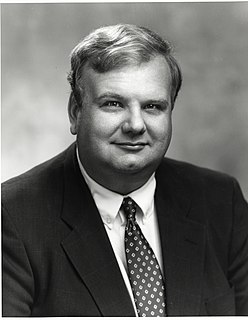A Quote by Peter Thiel
Spiraling demand for resources of which our world contains a finite supply is the great long-term threat posed by globalisation. That is why we need new technology to relieve it.
Related Quotes
Water is ultimately a finite resource. With all finite resources, there is a continuous need for sustainable and equitable management, by capping demand, improving efficiencies in supply and developing substitutes. This exercise is complicated by the sociocultural beliefs, values and affinities around this precious resource.
For too long we have tried to consume our
way to prosperity. Look at the cost: polluted
lands and oceans, climate change, growing
scarcity of resources from food to land to fresh
water, rampant inequality. We need to invent a
new model; a model that offers growth and social inclusion... that is more respectful of the
planet's finite resources. Nature has been kind
to human beings, but we have not been kind to
nature.
Our present ecological crisis, the biggest single practical threat to our human existence in the middle to long term, has, religious people would say, a great deal to do with our failure to think of the world as existing in relation to the mystery of God, not just as a huge warehouse of stuff to be used for our convenience.
The Bush Administration believes the Kyoto protocol could damage our collective prosperity, and in so doing, actually put our long-term environmental health at risk. Fundamentally, we believe that the protocol both will fail to significantly reduce the long-term risks posed by climate change and, in the short run, will seriously impede our ability to meet our energy needs and economic growth.
Our population and our use of the finite resources of planet Earth are growing exponentially, along with our technical ability to change the environment for good or ill. But our genetic code still carries the selfish and aggressive instincts that were of survival advantage in the past. It will be difficult enough to avoid disaster in the next hundred years, let alone the next thousand or million. Our only chance of long term survival, is not to remain inward looking on planet Earth, but to spread out into space.



































